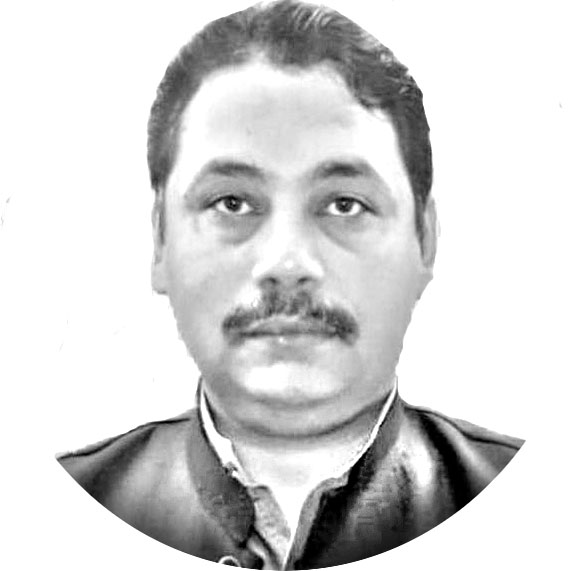Zeshan Haider
I was tasked by a broadcasting organization to produce a documentary on the cultural transformation of a police station. In those days, the crime rate in Punjab had skyrocketed. The snake of lawlessness had spread its wings to four hundred people every day. In the eyes of the police, the position of the police was declining day by day. For the Punjab Administration and senior police officials, the crime rate had increased and the people’s hatred for the police had become a headache. Democratic and undemocratic governments have been using police officers as seals on the carpet of politics and have made no attempt to uproot this rotten system. In preparing the documentary program on Police Station Culture, I want to highlight each and every aspect to discuss and examine the toxic motives that lead to this term. By adjudging the sinner as innocent and the innocent as sinner, such as macro-acts, playing with justice, difficulties in the investigation process, political influence, the grip of powerful mafia on government machinery, lack of funds, the problem of duty hours and police departments factors such as slow progress, registration of false cases were the main reasons for police culture. While the people had a lot of grievances against the police, the police also had a lot of grievances against this rotten system, the government, the media, the judiciary and the people who were never discussed in public circles, media and government houses. While the writer made public complaints about policing and public abuse part of his documentary program or highlighted the problems of police personnel there, the day-to-day problems faced by officials ranging from a constable to a DIG rank were also highlighted in the programme.
When the problems of the police personnel were put to the test of reality, such heartbreaking incidents were heard that neither the media nor the people and the ruling circles reached the bottom. After learning about the police system, I wrote numerous articles and tried to convey the real facts to the people and it was his duty to convey those facts to the people and government houses. Veiled recently, a few well-educated ASIs, sub-inspectors, Inspectors and DSP level officers of the police department wrote me a letter, the gist of which is as follows: The promotion system of officers and constables from constable to DSPs rank in Punjab police is very slow. Similarly, some DSPs of Punjab police also contacted me that they were recruited as an Inspector in 1998 and were promoted as DSP in 2014 and still they are in the rank of DSP while Direct ASPs are promoted as an SSP in just five years. They have got only one step promotion in 22 years of service while an ASP reaches DIG rank. Rankers are exploited by PSP officers.
Police stations are the basic unit of the justice provider and the ASI to DSP level investigating officer is the most important officer in any police station but unfortunately, the citizens themselves and the justice providers feel themselves inferior, deprived and they are suffering from injustice. In such a situation, what kind of justice will these people give to others? Surely, they will be treated with harsh words and harsh accents. A closer look at the promotion policy system of the four provinces reveals the fact that the promotion policy of constable to DSP level personnel in Punjab is extremely slow. Similarly, the promotion system of Sindh province is also slightly better than that of the Punjab. There was a time when a young ASI recruit could easily reach the rank of DIG but the previous government of Punjab passed several orders in 2013 and 2014. As a result, the promotion of these junior officers was stopped and they were deprived of promotion and sub-inspectors and inspectors were recruited directly, which is exploiting the personnel from constable to inspector. It is an indisputable fact that the people are mostly concerned with junior officers and it is these junior officers who have to provide basic justice to the people. There is no other opinion that there is a gap between PSP officers and Ranker police officers because PSP officers consider themselves superior. Now the rankers understand that they are also being treated unfairly by PSP officers and PSP officers are the biggest obstacle in their promotion. This wall between PSP officers and runners will also have to be broken to change the police station culture. Inam Ghani is a seasoned and experienced police officer and will surely solve this problem. Every opportunity for promotion is the right of every policeman. If new appointed IGP is sincere and want to change the concept of Thana Culture in Punjab, first of all the facilities will have to be provided to the employees from Constable to DSPs and their sense of deprivation must end.
—The writer is a senior broadcaster/ journalist and producer.










